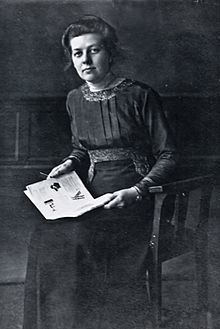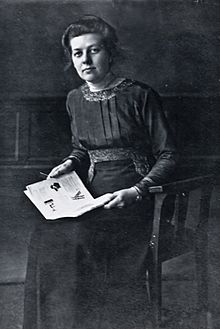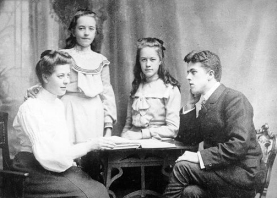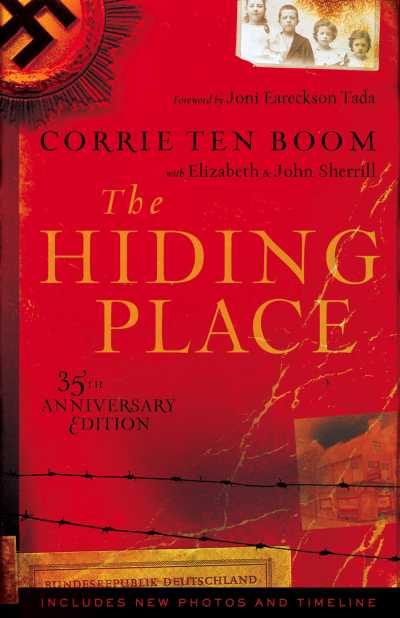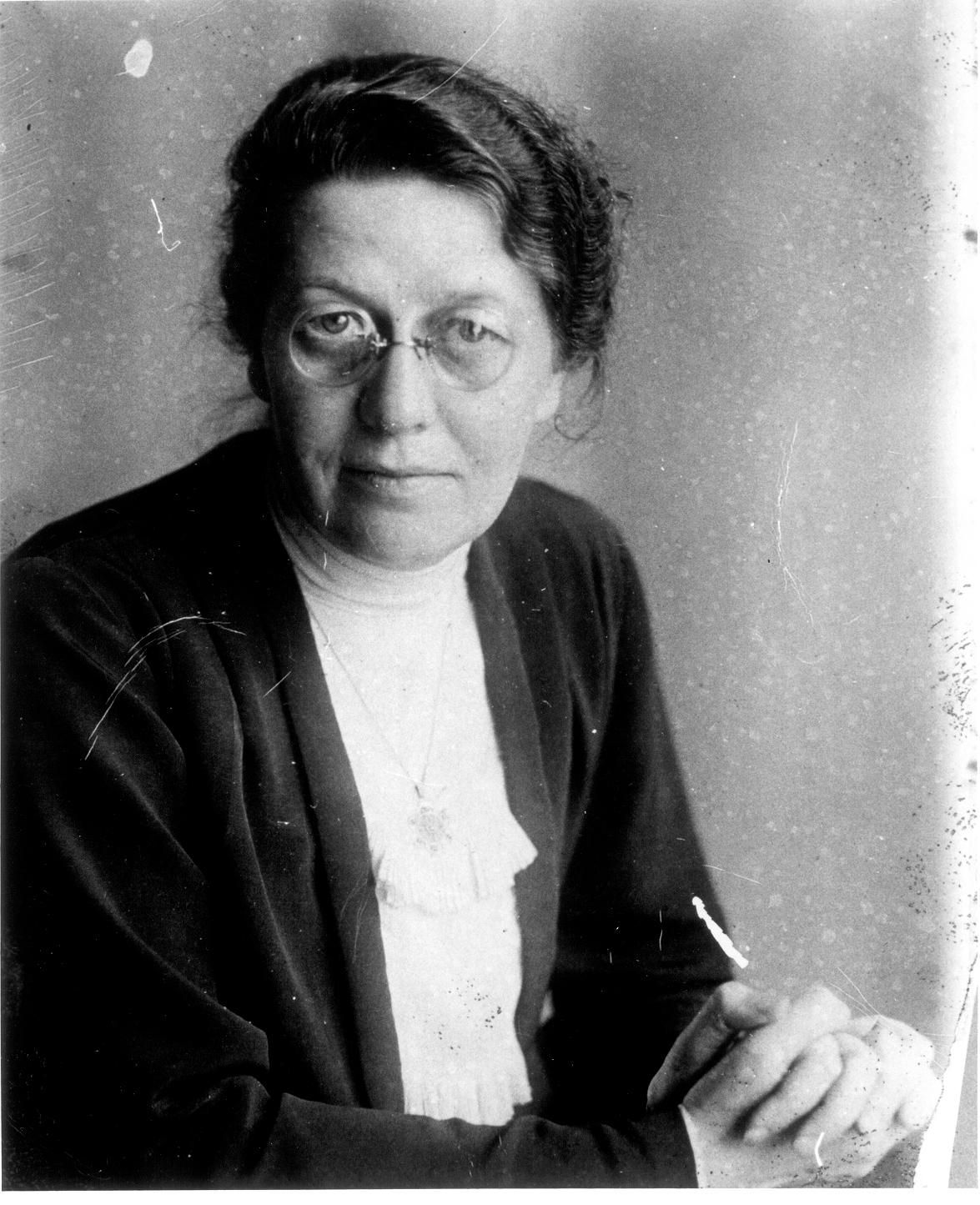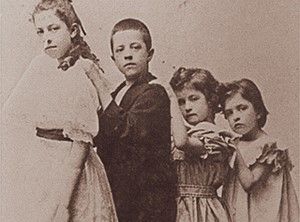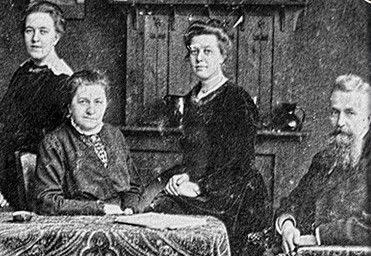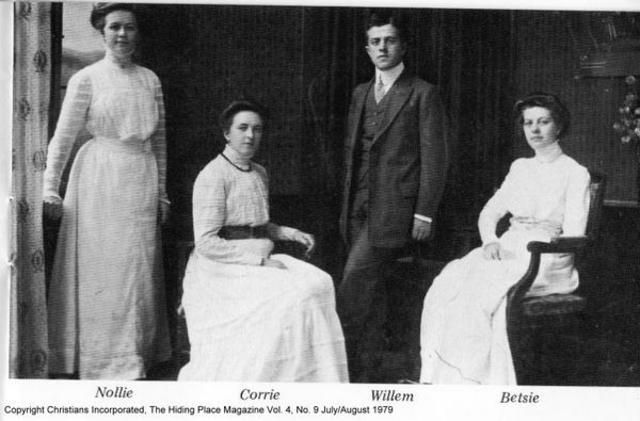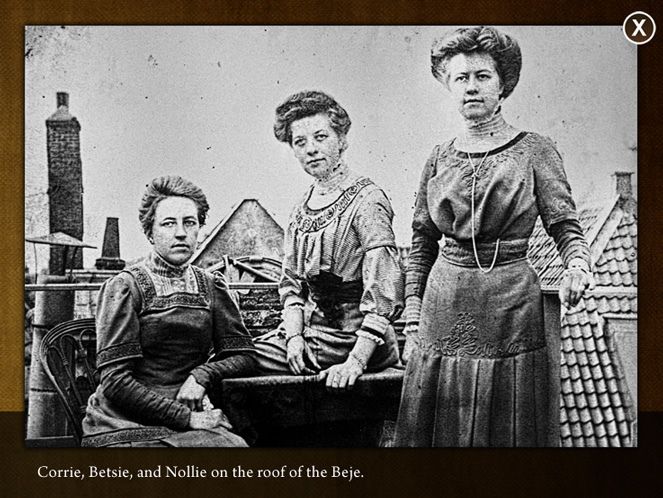The Ten Boom family held membership in the Dutch Reformed Church. The family's devout faith soon became tested during the Nazi occupation of Holland in World War II. The Ten Boom family opened their home to anyone in need of food or assistance.
During the Nazi persecution of the Jews, the Ten Booms took in Jews and hid them within their home. Some of the Jews stayed only a short period until permanent arrangements
could be made elsewhere. Using her occupation as a watchmaker as a cover, Corrie ten Boom participated in a network of resistance workers. Through her contacts, Corrie met an architect who designed a secret room for the top floor of the Ten Boom home. The residence became the permanent home for several Jews and the Ten Boom family conducted routine drills to ensure the Jews could reach the hiding place quickly in case the Nazis searched the home.
On February 28, 1944, the Gestapo raided the Ten Boom home. Six individuals including both Jews and resistance workers managed to reach the secret room and remain undetected during the raid. The Gestapo arrested the entire Ten Boom family. After several days, the Gestapo released all but three family members. The Nazis sent Betsie, along with her sister Corrie and her father Casper, to prison in the coastal town of Scheveningen. Betsie's father died after only ten days in prison. Betsie and her sister Corrie remained in Scheveningen until June 1944. At that time the Nazis transferred Betsie and Corrie to Vught Concentration Camp located within Holland. The sisters remained there until September 1944 when the Nazis evacuated the camp and sent Betsie and Corrie to Ravensbruck Concentration Camp in northern Germany.
Throughout their imprisonment, Betsie and Corrie held Bible studies and spread the gospel of Jesus. The sisters continued their teachings while enduring countless cruelties by the Nazi camp attendants. Due to the sisters' evangelism, many women at Ravensbruck accepted Christ as their personal savior.
During the last days of their imprisonment, Betsie stated that God told her that both sisters would be free of Ravensbruck before the year 1945. On December 16, 1944, Betsie ten Boom died at Ravensbruck and went to be with her Savior in Heaven. The Nazis released Corrie shortly thereafter. In 1971, Corrie wrote about her family's experience in her best-selling book The Hiding Place.
Bio by Luke Williams.
∼Elisabeth "Betsie" ten Boom was born in Haarlem, Holland, on August 19, 1885, the oldest daughter of Casper and Cor ten Boom. Her younger sister was Corrie ten Boom, renowned Christian missionary and author of "The Hiding Place", which recounts the story of their family's work with the Dutch Resistance during the Nazi occupation in World War II.
Betsie worked as a bookkeeper in her father's watch shop and was a meticulous homemaker. She never married, but remained in the family home where she lovingly served both family and friends.
The entire ten Boom family was arrested on February 28, 1944 for their part in the Dutch Resistance, including their elderly father, Casper ten Boom. The family was sent to Scheveningen prison where Casper ten Boom died ten days later. Betsie and Corrie were next sent to the Vught political concentration camp, and finally to Ravensbrück in what is now Fürstenberg, Germany. Betsie died in Ravensbrück on December 16, 1944. Her sister Corrie was released from Ravensbrückon December 31, 1944 due to a "clerical error".
Millions of Christians around the world came to know and love Betsie through the book, "The Hiding Place". Betsie is remembered for telling her sister, "There is no pit so deep that Christ is not deeper still."
The Ten Boom family held membership in the Dutch Reformed Church. The family's devout faith soon became tested during the Nazi occupation of Holland in World War II. The Ten Boom family opened their home to anyone in need of food or assistance.
During the Nazi persecution of the Jews, the Ten Booms took in Jews and hid them within their home. Some of the Jews stayed only a short period until permanent arrangements
could be made elsewhere. Using her occupation as a watchmaker as a cover, Corrie ten Boom participated in a network of resistance workers. Through her contacts, Corrie met an architect who designed a secret room for the top floor of the Ten Boom home. The residence became the permanent home for several Jews and the Ten Boom family conducted routine drills to ensure the Jews could reach the hiding place quickly in case the Nazis searched the home.
On February 28, 1944, the Gestapo raided the Ten Boom home. Six individuals including both Jews and resistance workers managed to reach the secret room and remain undetected during the raid. The Gestapo arrested the entire Ten Boom family. After several days, the Gestapo released all but three family members. The Nazis sent Betsie, along with her sister Corrie and her father Casper, to prison in the coastal town of Scheveningen. Betsie's father died after only ten days in prison. Betsie and her sister Corrie remained in Scheveningen until June 1944. At that time the Nazis transferred Betsie and Corrie to Vught Concentration Camp located within Holland. The sisters remained there until September 1944 when the Nazis evacuated the camp and sent Betsie and Corrie to Ravensbruck Concentration Camp in northern Germany.
Throughout their imprisonment, Betsie and Corrie held Bible studies and spread the gospel of Jesus. The sisters continued their teachings while enduring countless cruelties by the Nazi camp attendants. Due to the sisters' evangelism, many women at Ravensbruck accepted Christ as their personal savior.
During the last days of their imprisonment, Betsie stated that God told her that both sisters would be free of Ravensbruck before the year 1945. On December 16, 1944, Betsie ten Boom died at Ravensbruck and went to be with her Savior in Heaven. The Nazis released Corrie shortly thereafter. In 1971, Corrie wrote about her family's experience in her best-selling book The Hiding Place.
Bio by Luke Williams.
∼Elisabeth "Betsie" ten Boom was born in Haarlem, Holland, on August 19, 1885, the oldest daughter of Casper and Cor ten Boom. Her younger sister was Corrie ten Boom, renowned Christian missionary and author of "The Hiding Place", which recounts the story of their family's work with the Dutch Resistance during the Nazi occupation in World War II.
Betsie worked as a bookkeeper in her father's watch shop and was a meticulous homemaker. She never married, but remained in the family home where she lovingly served both family and friends.
The entire ten Boom family was arrested on February 28, 1944 for their part in the Dutch Resistance, including their elderly father, Casper ten Boom. The family was sent to Scheveningen prison where Casper ten Boom died ten days later. Betsie and Corrie were next sent to the Vught political concentration camp, and finally to Ravensbrück in what is now Fürstenberg, Germany. Betsie died in Ravensbrück on December 16, 1944. Her sister Corrie was released from Ravensbrückon December 31, 1944 due to a "clerical error".
Millions of Christians around the world came to know and love Betsie through the book, "The Hiding Place". Betsie is remembered for telling her sister, "There is no pit so deep that Christ is not deeper still."
